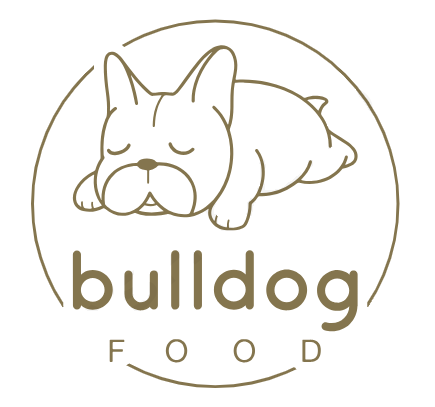
Providing adequate nutrition plays a pivotal role in fostering the robust growth and optimal development of French Bulldog puppies. It’s imperative to ascertain the precise quantity of nourishment they receive, as it significantly impacts not just their physical advancement but also their holistic welfare. In this comprehensive manual, we’ll explore the intricacies of nourishing a French Bulldog puppy, encompassing essential facets such as dietary requirements, feeding regimens, and prevalent concerns related to their sustenance. Discovering How much to feed french bulldog puppy is fundamental to their flourishing journey into adulthood.
Understanding Your French Bulldog Puppy’s Nutritional Needs
Unique Dietary Requirements
French Bulldog puppies have specific dietary needs that must be met to support their rapid growth during the early stages of life. Their diet should be balanced and enriched with essential nutrients, including:
- Proteins: Vital for muscle growth and tissue repair.
- Fats: Provide energy and support brain development.
- Carbohydrates: Supply energy for daily activities.
- Vitamins and Minerals: Crucial for bone development, immune function, and overall health.
Determining Nutritional Needs
The nutritional needs of a French Bulldog puppy can vary based on several factors:
- Age: Nutritional requirements change as your puppy grows.
- Size: Larger puppies may need more food compared to smaller ones.
- Activity Level: Active puppies may require more calories.
- Health Condition: Puppies with specific health issues may need tailored diets.
How much to feed french bulldog puppy

Recommended Feed
A consistent feeding schedule is essential for maintaing Scheduleining your puppy’s health and preventing overeating. Here’s a general guideline based on age:
- 8-12 Weeks: 4 meals per day
- 3-6 Months: 3 meals per day
- 6-12 Months: 2-3 meals per day
Determining Portion Sizes
Determining portion sizes for a French Bulldog Puppy requires careful consideration, as it depends on several factors such as weight, activity level, and specific health condition of the dog. Below is a general guide on how to determine portion sizes:
- Weight: Determine the current weight of the dog and compare it with standard weight charts for the dog’s age.
- Activity: Assess the daily activity level of the dog, including walking and exercise.
- Health: Monitor the dog’s health status to adjust the food amount as needed.
- Food: Follow the feeding guidelines provided by the brand of food you are using and adjust portion sizes based on those guidelines.
- Implement adjustments: Adjust portion sizes based on your observations of the dog’s health and weight.
- Consult a veterinarian: It’s always beneficial to discuss the feeding schedule and portion sizes with a veterinarian to ensure that the dog is receiving adequate nutrition.
The food measurement table:
| Age | Weight (Approximate) | Meals per Day | Portion Size (Dry Food) | Portion Size (Wet Food) |
| 8-12 Weeks | 2 – 4 kg | 4 | 1/4 – 1/2 cup | 1/2 – 1 cup |
| 3-6 Months | 4 – 7 kg | 3 | 1/2 – 3/4 cup | 1 – 1 1/2 cups |
| 6-12 Months | 7 – 12 kg | 2-3 | 3/4 – 1 cup | 1 1/2 – 2 cups |
Please note that weight may vary depending on the individual puppy’s growth. Always monitor and adjust the food amount based on the puppy’s weight, activity level, and specific health needs. Consult with a veterinarian if necessary.
Importance of Consistency
Consistency in both feeding times and portion sizes helps to regulate digestion and prevent overeating. Establishing a routine can also make mealtimes predictable and stress-free for your puppy.
Choosing the Right Puppy Food
- Quality Ingredients : According to AAFCO Statement Look for puppy foods with around 28-32% protein, ideally sourced from high-quality sources such as chicken, turkey, or fish as the primary ingredient. Avoid foods containing fillers like corn, wheat, or soy.
- Balanced Nutrition : Aim for a fat content of approximately 14-18% and moisture content no higher than 10%. Ensure the food provides essential nutrients such as calcium, phosphorus, and DHA for proper bone and brain development.
- Small Breed Formula : Choose foods specifically formulated for small breed puppies, with smaller kibble sizes and tailored nutrient levels to support the unique needs of French Bulldog puppies.
- Life Stage Appropriateness : Select puppy formulas labeled as suitable for puppies. These formulations are designed to meet the higher energy and nutritional requirements of growing dogs.
- Consult Your Vet : Your veterinarian can offer personalized recommendations based on your French Bulldog puppy’s specific needs, such as any allergies or health concerns.
Monitoring Your Puppy’s Weight and Growth

Regular monitoring of your French Bulldog puppy’s weight and growth is essential to ensure they are developing healthily. Tracking these metrics can help you adjust their diet as needed and catch any potential health issues early.
Weighing Your Puppy
Regularly weighing your puppy is a straightforward way to monitor their growth. Below is the weight table of the French Bulldog puppy :
| Age (weeks) | Weight Range (lbs) | Weight Range (grams) |
| Birth | 0.5 – 0.75 | 225 – 340 |
| 1 | 0.03 – 0.125 | 28 – 56 |
| 2 | 1 – 2 | 450 – 900 |
| 3 | 1.5 – 3 | 680 – 1,360 |
| 4 | 2 – 4 | 900 – 1,800 |
| 6 | 3 – 5 | 1,360 – 2,300 |
| 8 | 4 – 7 | 1,800 – 3,200 |
Body Condition Score (BCS)
Besides just weight, evaluating your puppy’s Body Condition Score (BCS) can give you a better understanding of their overall health. The BCS system rates a dog’s body condition on a scale from 1 to 9:
1-3: Underweight
4-5: Ideal weight
6-9: Overweight to obese
To assess your puppy’s BCS, you can feel their ribs; they should be easily felt but not visible. Your puppy should also have a visible waist when viewed from above and a tucked-up abdomen when viewed from the side.
Adjusting the Diet
If you notice your French Bulldog puppy is not thriving, consider adjustments to their diet. Consult with your veterinarian to determine the best course of action. Adjustments may include:
- Increasing or decreasing portion sizes based on weight changes.
- Switching to a different food formula if their current diet lacks necessary nutrients or if they’re not digesting it well.
- Adding supplements recommended by your veterinarian to address specific deficiencies.
Regular veterinary check-ups will further ensure your puppy remains on a healthy growth trajectory. Your vet can offer tailored advice and help you fine-tune your puppy’s nutritional plan.
By staying attentive to your French Bulldog puppy’s weight and growth, you can ensure they develop into a healthy, happy adult dog.
Addressing Common Concerns and Issues

Raising a French Bulldog puppy comes with its set of unique challenges and concerns. Some common issues that you may encounter include allergies, digestive problems, and respiratory issues.
Allergies
French Bulldogs are known to have sensitive skin and can be prone to allergies. These allergies can be triggered by various factors, such as food ingredients, environmental elements like pollen and dust, or even certain grooming products. Common signs of allergies include excessive itching, redness, and swelling. To manage allergies, it’s crucial to. Opting for specialized diets labeled as ” Best food for French Bulldog with skin allergies ” may help alleviate symptoms and promote better skin health.
- Identify the Allergen: Work with your vet to conduct allergy tests to pinpoint the specific trigger.
- Food Trials: Switch to hypoallergenic food formulas that avoid common allergens such as chicken, beef, dairy, and grains.
- Environmental Control: Maintain a clean living environment by using air purifiers, regularly washing your puppy’s bedding, and limiting exposure to known allergens.
Digestive Problems
Digestive issues are another area of concern for French Bulldog puppies, who often have sensitive stomachs. Symptoms like diarrhea, vomiting, and gas can indicate digestive troubles. Tips for managing digestive health include:
- Feeding Smaller, Frequent Meals: This can help reduce the risk of bloating and improve digestion.
- Choosing Easily Digestible Foods: Opt for high-quality, commercial diets that are easy on the stomach and avoid table scraps.
- Hydration: Ensure your puppy has constant access to fresh water to aid digestion.
- Probiotics: Consider adding vet-approved probiotics to your puppy’s diet to support gut health.
Respiratory Issues
Due to their brachycephalic anatomy, French Bulldogs often face respiratory challenges. It’s important to monitor breathing and be mindful of the following:
- Exercise Caution: Avoid vigorous exercise or exposure to hot and humid conditions, as these can exacerbate breathing difficulties.
- Weight Management: Keep your puppy at an ideal weight to reduce the strain on their respiratory system.
- Humidifiers: Use a humidifier in your home to ease breathing by adding moisture to the air.
Picky Eating
If your puppy is a picky eater, try the following:
- Consistency: Stick to a regular feeding schedule.
- Variety: Occasionally mix in wet food or add a small amount of low-sodium broth.
- Avoid Human Food: Feeding table scraps can encourage picky behavior.
Conclusion
Understanding how much to feed french bulldog puppy with best food for french bulldog is essential for their growth and development. By grasping their nutritional requirements, adhering to a consistent feeding routine, and regularly monitoring their weight, you can ensure your puppy grows into a healthy and content adult dog. Always prioritize your puppy’s dietary needs and seek personalized guidance from your veterinarian. For those embarking on the journey of raising a French Bulldog puppy, determining how much to feed them is the first step towards establishing a long, healthy, and joyful life together. Make their nutritional requirements a priority today to lay the groundwork.

At bestfoodforfrenchbulldog.net, Frenchie Feast Co is dedicated to providing the best information and advice on nutrition and food for French Bulldogs. We understand that every dog has unique nutritional needs, especially breeds like the French Bulldog. Therefore, we continually research and seek out optimal nutritional solutions.
CEO Lincoln Martin is not only the founder of BestDogFoodForDachshunds.net but also a proud Dachshund parent. With a deep understanding of the unique dietary needs of Dachshunds, Lincoln Martin is committed to helping fellow dog owners make informed decisions about their pets’ nutrition.
Driven by a love for animals and a desire to share valuable insights, our team works tirelessly to research and curate the most reliable and up-to-date information on dog food, health, and care. From reviewing the latest products to offering practical tips and advice, we strive to be your trusted source for everything Dachshund-related.
Whether you’re a new Dachshund owner or a seasoned enthusiast, you can trust the expertise and dedication of the team at BestDogFoodForDachshunds.net to support you on your journey of providing the best care for your furry friend.
